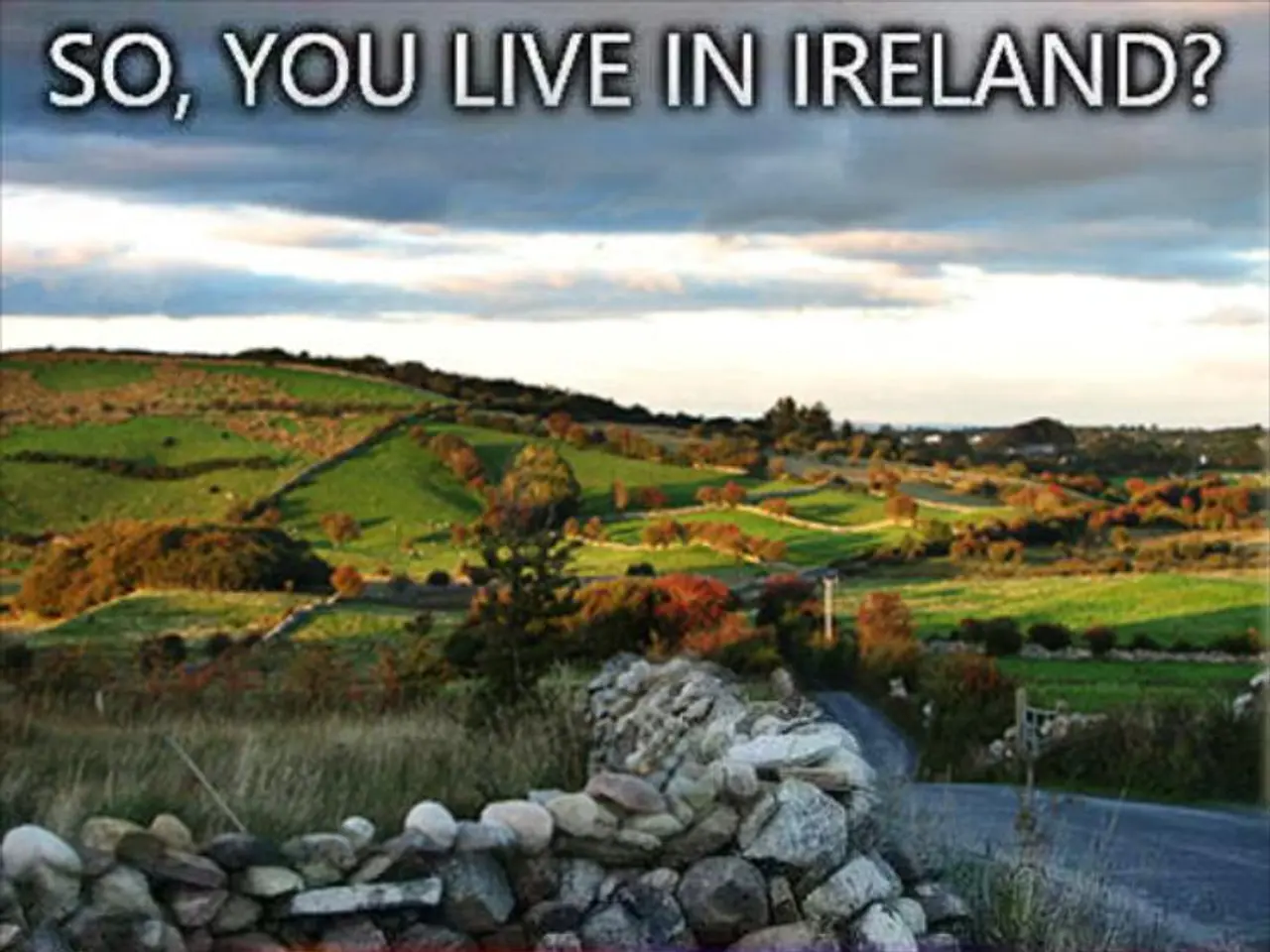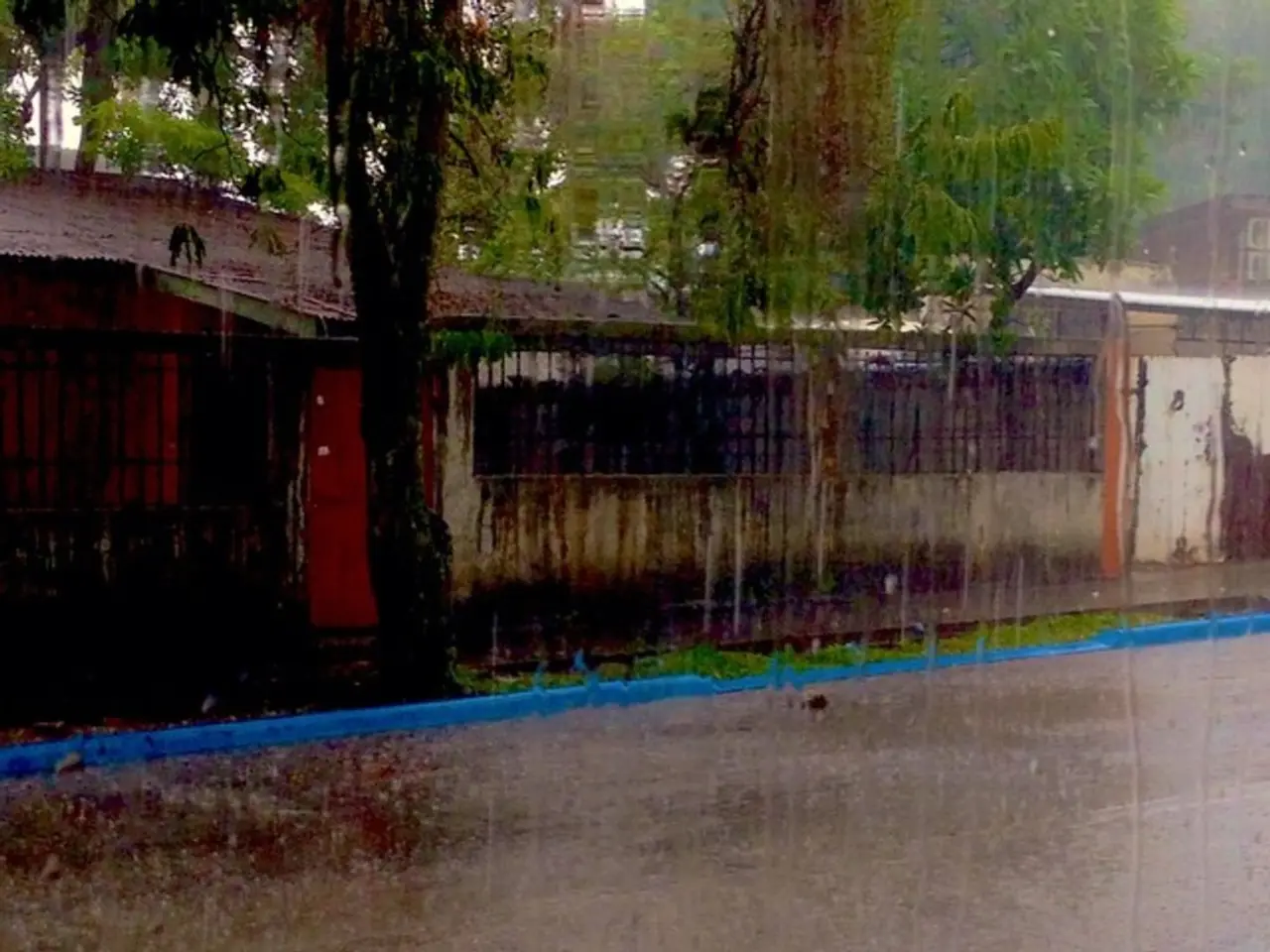Fires ravaging a renowned tourist destination in Greece, leading to compulsory evacuations on a large scale.
In a series of devastating events, wildfires have been tearing through various European countries this week, with Greece's largest island, Crete, currently grappling with an out-of-control blaze. The fires, fuelled by unusually high temperatures, gale-force winds, and widespread drought, have been exacerbated by human-caused climate change, making Europe the fastest-warming region on Earth.
The intensifying heatwaves and drought conditions have led to record-breaking highs, such as up to 46°C in parts of Spain, which in turn exacerbate the drought and increase the probability of wildfires. The dry weather has resulted in forests and soils becoming more flammable, creating a perfect storm for wildfires.
The Greek Fire Department's press spokesperson, Chief Vasilios Vathrakoyannis, has stated that July, the hottest month in Greece, is the third and most difficult month of the fire season. He further added that the current conditions are causing new outbreaks, making firefighting work extremely difficult.
To combat these growing wildfire risks, Europe must adopt a comprehensive approach. This includes improved forest and land management, early warning and monitoring, public awareness and preparedness, climate action, and emergency response improvements. Controlled burns, clearing underbrush, maintaining fire breaks, using climate data and fire risk maps, educating populations, reducing greenhouse gas emissions, and enhancing firefighting capacity are all crucial elements in this strategy.
In Crete, more than 230 firefighters, 46 vehicles, and 10 helicopters have been deployed to fight the blaze. Unfortunately, the flames have spread rapidly, affecting homes, hotels, and other tourist accommodations, leading to mass evacuations. Authorities have ordered evacuations for residents of four settlements, and ERT, the Greek public broadcaster, reported the evacuation of about 1,500 people.
The situation is not unique to Greece. Tens of thousands were evacuated in Turkey due to wildfires in the provinces of Izmir, Manisa, and Hatay, with nearly 200 homes damaged by the fires. Strong winds are common in July in Greece, which contribute to the spread of wildfires, a factor that has also been affecting the fires in Turkey.
Blazes have also broken out in France and Spain, where two people have tragically lost their lives. The police, medical services, and the coast guard have been called to the wildfire in Crete to ensure the safety of those evacuated and to provide necessary assistance.
The urgency of these actions is underscored by predictions of thousands of preventable deaths due to heatwaves and wildfires coinciding with these extreme climate events in Europe. Without rapid intervention, the intensity and frequency of wildfires will likely continue to rise, threatening ecosystems, human health, and infrastructure across the continent.
[1] European Environment Agency. (2020). State of the Environment Report - Europe's environment: health and wellbeing. [2] European Commission. (2021). Adapting to climate change in Europe: Factsheet. [3] European Forest Institute. (2021). Wildfire risk and climate change: A focus on Europe.
- The alarming increase in wildfires across Europe, such as the current blaze in Crete, is a direct consequence of climate change, which has made Europe the fastest-warming region on Earth, according to the science and environmental-science communities.
- As the political and general-news spheres grapple with the urgent need for action, strategic approaches to combat growing wildfire risks must include improved land management, public awareness, and climate action, as well as early warning systems, emergency response improvements, and controlled burns to prevent the further exacerbation of wildfire incidents.
- The widespread wildfires in Europe, including those in Greece, Turkey, France, and Spain, serve as a stark reminder that the effects of climate-change are being felt across various regions, necessitating immediate and comprehensive intervention to safeguard human health, infrastructure, and ecosystems from the escalating threat of these devastating events.








